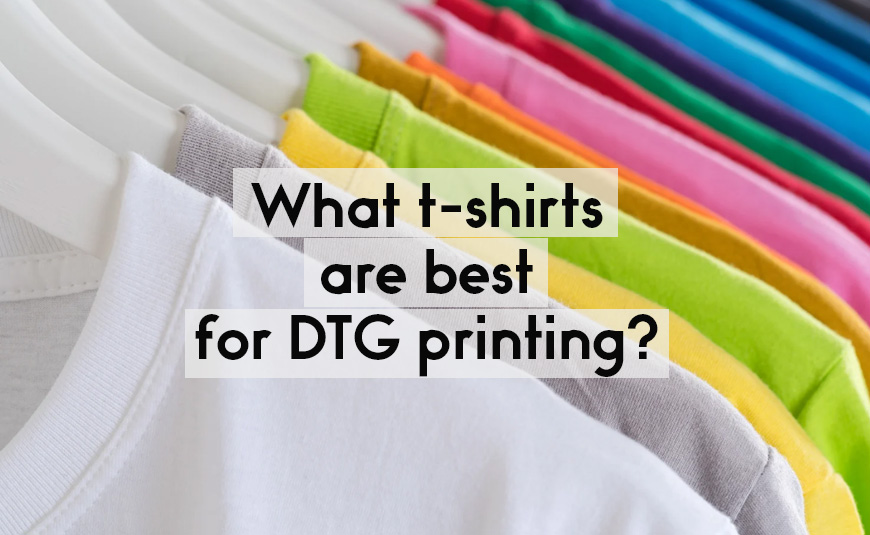Blank t-shirts
What t-shirts are best for DTG printing?
Combed cotton t-shirts that are 22-singles and made from 200 GSM organic cotton are best for DTG printing as they are the softest types of t-shirts produced with the smoothest surface area. Combed cotton t-shirts have a smooth surface for professional ink application and give superior ink adhesion. Combed cotton is also much softer than other cotton types and for this reason is a popular choice for DTG printers. Combed cotton t-shirts have a smooth surface area and is comfortable to wear.
Why are combed cotton t-shirts the best for DTG printing?
Combed cotton is disentangled and cleaned in the early stages of manufacturing. The disentangling is done to produce a continuous sliver before being spun into yarn. The cotton fibres are then thoroughly carded and then physically combed to fall in the same direction. The process of physically combing the cotton is what gives combed cotton its buttery smoothness. A t-shirt made from combed cotton is softer against your skin and less likely to fray.
Combed cotton is more resilient to keeping its shape and smoothness from washing and more solid in being resistant to tears.
What t-shirt GSM weight is good for DTG printing?
Due to the DTG printing process, the best cotton weight for a professional finish needs to be in the mid to heavy weight GSM category. We recommend between the 180 GSM to 200 GSM range. Selecting a cotton t-shirt that is unisex with on trend colours, side seams and quality stitching will also give durability.
What t-shirts give the best ink adhesion for DTG printing?
DTG printing requires a blank t-shirt that is made from quality cotton and that works well with ink adhesion. The advantage of DTG printing is that it is easy to print and can give high quality results in an efficient manner. DTG is able to produce bright colours with perfect straight lines and is also capable of replicating photographic images on a t-shirt. However, if the t-shirt is made from inferior cotton the results will not be as high quality as with a superior t-shirt.
DTG uses an ink spraying method that soaks ink into a t-shirt’s cotton fibers. Much like how a conventional printer delivers ink to paper, DTG printing delivers ink to cotton garments. For this reason, it’s important that a high quality, smooth t-shirt is used when DTG printing. Think of the results you get if you use paper that has imperfections and isn’t smooth.
What are the advantages of organic cotton t-shirts for DTG printing?
Using an approved organic combed cotton t-shirt will also ensure a t-shirt’s surface area has been naturally smoothed without the use of harmful chemical processes. It’s a good idea to look for a GOTS organic logo.
One of the major downfalls of cheaper, non organic t-shirts is their susceptibility to cotton shrinkage. As the DTG ink adheres to a t-shirt’s cotton fibers its design can be impacted if cotton shrinkage occurs.
As DTG printers use water based chemistry they generally work best with natural fibres such as organic cotton.
While DTG printing will work with a range of t-shirt cotton blends it is accepted that 100% combed cotton is the best for DTG.
In summary get a t-shirt that is:
- 100% pre-shrunk combed cotton
- GOTS approved organic cotton
- GSM weight between 180 – 200 GSM

